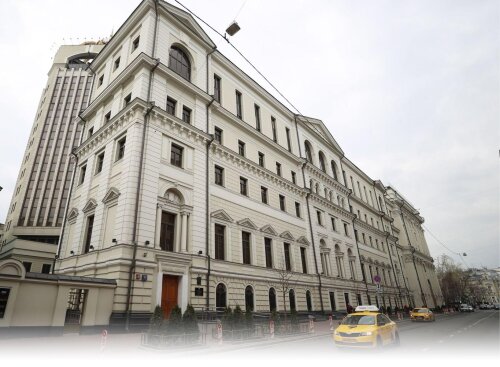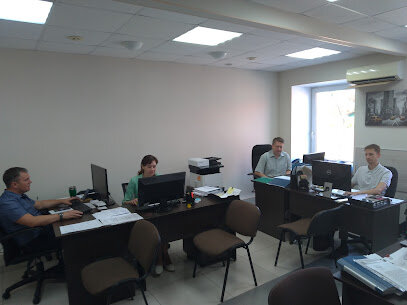Best Bankruptcy Lawyers in Russia
Share your needs with us, get contacted by law firms.
Free. Takes 2 min.
Or refine your search by selecting a city:
List of the best lawyers in Russia

About Bankruptcy Law in Russia
Bankruptcy in Russia is a legal procedure aimed at resolving the debts of individuals, entrepreneurs, and companies by distributing their assets under the jurisdiction of Russian federal law. The bankruptcy process is governed by the Federal Law No. 127-FZ "On Insolvency (Bankruptcy)" enacted in October 2002. This legislation provides the framework for both voluntary and involuntary bankruptcy proceedings and aims to balance the interests of creditors and the insolvent party. It applies to individual entrepreneurs, legal entities, and, since 2015, individuals.
Why You May Need a Lawyer
Hiring a lawyer experienced in bankruptcy law in Russia can be crucial given the complex nature of the proceedings. Common situations requiring legal assistance include:
- Difficulty in repaying debts and facing potential lawsuits from creditors.
- Being the subject of bankruptcy proceedings initiated by creditors.
- Negotiating with creditors to structure a payment plan or to seek debt restructuring options.
- Understanding the implications of bankruptcy on your personal or business assets.
- Preparation and filing of necessary documents efficiently and compliantly to avoid procedural pitfalls.
Local Laws Overview
The process of bankruptcy in Russia involves several stages, including supervision, financial rehabilitation, external management, and liquidation if required. Key aspects of the law include:
- Supervision: A preliminary stage during which a temporary manager assesses the debtor's financial status.
- Financial Rehabilitation: Aimed at restoring the debtor's solvency and making payments according to a schedule.
- External Management: A non-liquidation-driven approach where external administration might help bring the company back to solvency.
- Liquidation: If the company is beyond saving, its assets are sold off to include payments to creditors.
Individual bankruptcy proceedings have specific procedural rules that differ slightly, especially concerning the potential discharge of debts.
Frequently Asked Questions
What is the threshold for initiating a bankruptcy proceeding?
A creditor can initiate bankruptcy proceedings if the debt exceeds 300,000 RUB and the debtor has not fulfilled the payment obligations within 3 months.
Can individuals file for bankruptcy in Russia?
Yes, individuals can declare bankruptcy under certain conditions, such as having an inability to repay debts amounting to 500,000 RUB or more within three months.
How long does a bankruptcy process usually take?
The duration of a bankruptcy process varies depending on its complexity but generally takes several months to a few years.
What are the costs associated with filing for bankruptcy?
Costs can include court fees, the remuneration of the bankruptcy manager, and legal fees. These can vary significantly based on the specifics of each case.
Does bankruptcy affect my future credit rating?
Yes, bankruptcy can have a lasting impact on your credit rating, making it more challenging to secure loans or credit in the future.
Can I keep any assets after declaring bankruptcy?
Certain personal assets deemed necessary for everyday life can be retained, while most non-essential assets are usually liquidated to satisfy debts.
Is an out-of-court settlement possible?
Yes, debtors and creditors can reach an amicable settlement outside of court, which is a preferred scenario for many to avoid lengthy court proceedings.
What happens to the management of a company during bankruptcy?
During bankruptcy, external managers are often appointed to oversee business operations with the goal of recovering solvency or facilitating an orderly liquidation.
How does bankruptcy affect individual entrepreneurs differently from companies?
Individual entrepreneurs undergo a similar process to individuals, but their business-related obligations also play a part in the proceedings.
What is the discharge of debt in bankruptcy?
For individuals, a discharge means that qualifying debts are wiped clean, granting a fresh financial start. However, not all debts can be discharged under this provision.
Additional Resources
For those seeking further information or assistance with bankruptcy in Russia, consulting the following resources can be helpful:
- Federal Tax Service of Russia - Provides guidelines and assistance regarding insolvency and bankruptcy.
- Chamber of Commerce and Industry of Russia - Offers legal advisory services and support.
- Professional associations such as the "Russian Association of Professionals and Self-Regulatory Organizations of Bankruptcy Managers" for consultations and guidance.
Next Steps
If you find yourself considering bankruptcy or navigating its complexities, it is advisable to consult a qualified legal professional specializing in bankruptcy. Begin by:
- Gather all relevant financial documents, including debts, assets, and income statements.
- Seek recommendations for reputable law firms or bankruptcy attorneys with experience in Russian law.
- Schedule a consultation to discuss your specific situation and explore available options.
- Prepare to actively engage in your case and follow through with legal advice to ensure a smooth process.
Taking these proactive steps can help you manage the bankruptcy process more effectively and achieve the best possible outcome for your situation.
Lawzana helps you find the best lawyers and law firms in Russia through a curated and pre-screened list of qualified legal professionals. Our platform offers rankings and detailed profiles of attorneys and law firms, allowing you to compare based on practice areas, including Bankruptcy, experience, and client feedback.
Each profile includes a description of the firm's areas of practice, client reviews, team members and partners, year of establishment, spoken languages, office locations, contact information, social media presence, and any published articles or resources. Most firms on our platform speak English and are experienced in both local and international legal matters.
Get a quote from top-rated law firms in Russia — quickly, securely, and without unnecessary hassle.
Disclaimer:
The information provided on this page is for general informational purposes only and does not constitute legal advice. While we strive to ensure the accuracy and relevance of the content, legal information may change over time, and interpretations of the law can vary. You should always consult with a qualified legal professional for advice specific to your situation.
We disclaim all liability for actions taken or not taken based on the content of this page. If you believe any information is incorrect or outdated, please contact us, and we will review and update it where appropriate.
Browse bankruptcy law firms by city in Russia
Refine your search by selecting a city.














